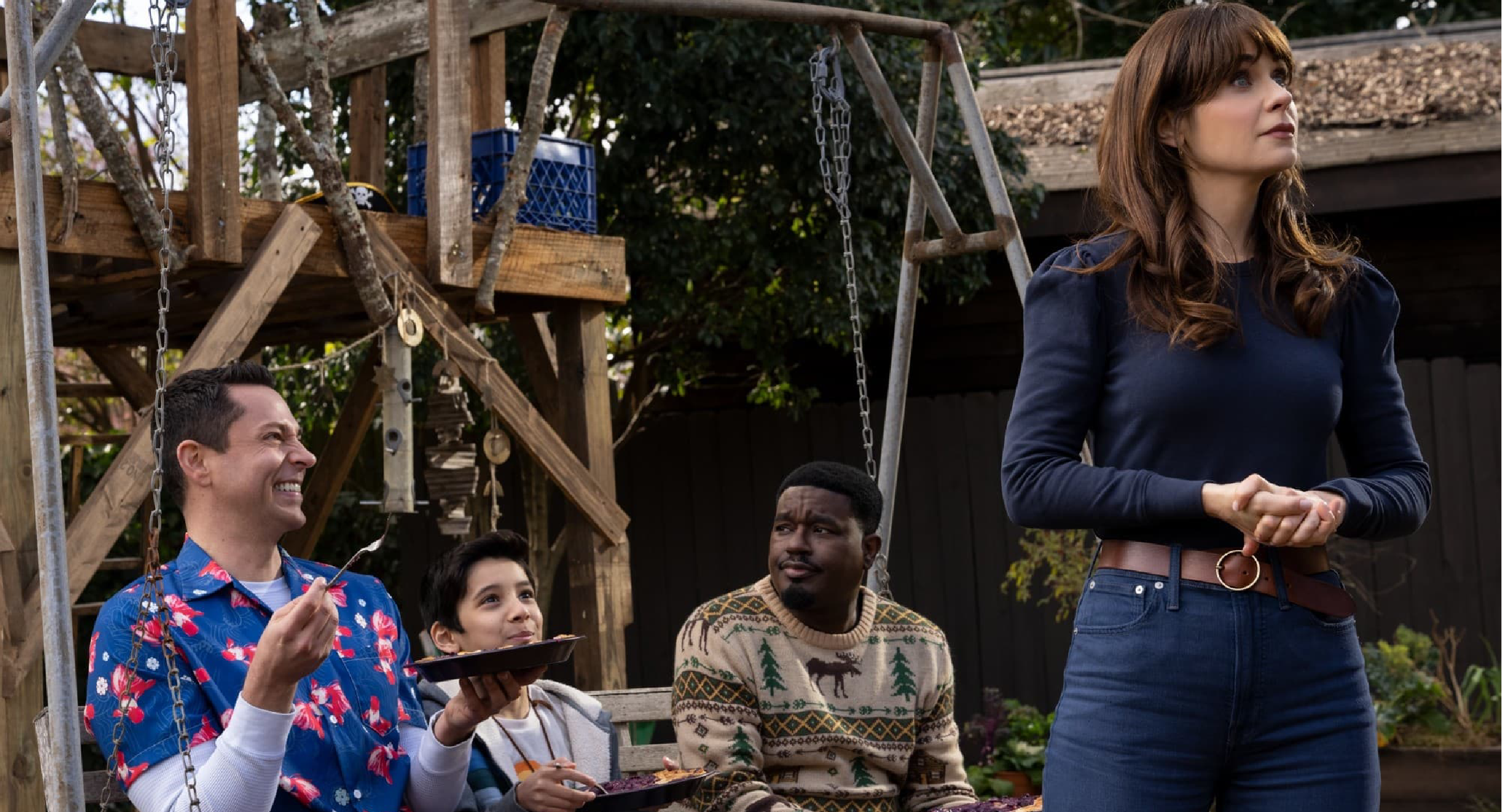Harold and the Purple Crayon – Film Review
Published August 28, 2024

Harold and the Purple Crayon, directed by Carlos Saldanha in his live-action feature debut, attempts to blend the whimsical world of Crockett Johnson’s beloved 1955 children’s book with a more mature, modern storyline. Unfortunately, this blend of live-action and animation often feels like a miscalculation rather than a seamless extension of Harold’s imaginative adventures. With a star-studded cast including Zachary Levi, Lil Rel Howery, and Zooey Deschanel, the film has moments of charm, but its disjointed narrative and lack of emotional depth ultimately make it a disappointing film.
The story follows an older Harold who, still wielding his magical purple crayon, decides to leave the pages of his book in search of his missing father, whom he believes is the narrator known as “old man.” While this premise offers a compelling setup filled with potential, the execution falls short. The film’s plot, which sees Harold navigating the real world with the help of Moose (now a human) and a young boy named Mel, quickly becomes a muddled series of events that lack a clear emotional anchor.
One of the film’s major weaknesses is its inability to maintain a consistent tone. At times, it strives to capture the lighthearted innocence of a children’s story, while other moments aim for a more mature, introspective narrative. This tonal inconsistency results in a film that feels caught between being a nostalgic trip for adults who grew up with the book and an overly complicated tale for the younger audience it seems intended for. This disconnect is particularly evident in the character of Harold himself. While Zachary Levi’s performance brings a certain charm to the character, Harold’s journey through the real world feels less like a hero’s quest and more like a series of random encounters that never quite build into a cohesive story.
Visually, the film is ambitious, with some impressive animated sequences that capture the whimsical style of the original book. The blending of animation with live-action is well done in certain scenes, particularly when Harold uses his crayon to draw fantastical elements into reality. The film shines when it leans into the creative potential of the crayon, crafting visually engaging and imaginative moments that pay homage to Johnson’s work. The vibrant, hand-drawn animation style that punctuates the film does capture a sense of wonder, but these moments are fleeting and often overshadowed by a story that feels overstuffed and underdeveloped.
The supporting cast, including Lil Rel Howery as Moose and Jemaine Clement as the quirky librarian Gary Natwick, provide some comedic relief, but their characters feel one-dimensional. Moose, who is transformed into a human for much of the film, acts as a sidekick to Harold but lacks the depth and personality needed to make him a memorable companion. Jemaine Clement’s Gary starts off as an amusing, eccentric character, but his sudden shift into the antagonist role feels forced and underexplored, reducing what could have been an interesting character arc into a caricature of a villain.
Another significant misstep is the character of Terri, played by Zooey Deschanel. While Deschanel’s natural charisma shines through, her role as the struggling pianist and mother feels underwritten and disconnected from the main narrative. The subplot involving her desire to pursue music is introduced but never fully realized, leaving her character arc feeling incomplete. Her relationship with Harold and Moose is underdeveloped, and her transformation from a skeptical bystander to a supportive ally feels rushed and unearned.
The film also grapples with pacing issues, as it oscillates between frenetic action sequences and slower, more reflective moments that drag the narrative down. Scenes meant to evoke emotional weight, such as Harold’s realization about his father’s identity, are undercut by a lack of buildup and payoff, making them feel hollow rather than heartwarming. The film’s attempt to tackle themes of loss, creativity, and self-discovery gets muddled amidst its chaotic plot, leaving audiences unsure of the film’s core message.
Additionally, the film struggles with its use of humor, often relying on slapstick and overly juvenile gags that feel at odds with the story’s more serious undertones. The comedic moments involving Moose and Porcupine, who joins the adventure later, are particularly hit-or-miss, often feeling more like filler than genuine character development. While some jokes land, many feel out of place, disrupting the narrative flow and further highlighting the film’s struggle to find a consistent tone.
One of the few bright spots is the character of Mel, played by Benjamin Bottani, who brings a youthful energy to the film. Mel’s bond with Harold adds a layer of innocence and nostalgia that briefly elevates the story. Their interactions, though limited, provide some of the film’s more heartfelt moments, but even these are not enough to compensate for the overall lack of emotional resonance.
Ultimately, Harold and the Purple Crayon is a film that suffers from an identity crisis. Its attempts to honor the whimsical spirit of the original book are overshadowed by a convoluted plot, inconsistent tone, and characters that feel more like plot devices than fully realized individuals. While it boasts some visually striking sequences and moments of genuine creativity, these glimpses of magic are not enough to sustain the film’s bloated narrative.
For fans of the original book, this film may serve as a nostalgic curiosity, but it fails to capture the simple, heartfelt magic that made Harold’s adventures so endearing. For newcomers, it’s a confusing and uneven journey that never quite finds its footing. In the end, Harold and the Purple Crayon feels like a sketch of a movie that, much like its protagonist’s drawings, never fully comes to life.
